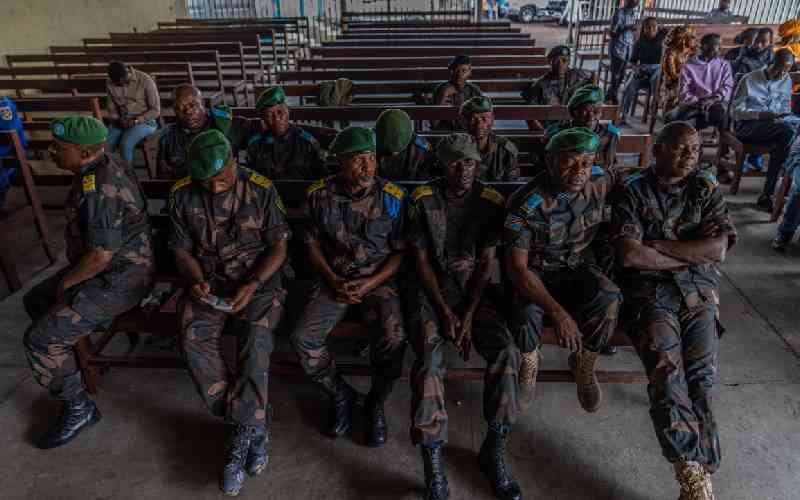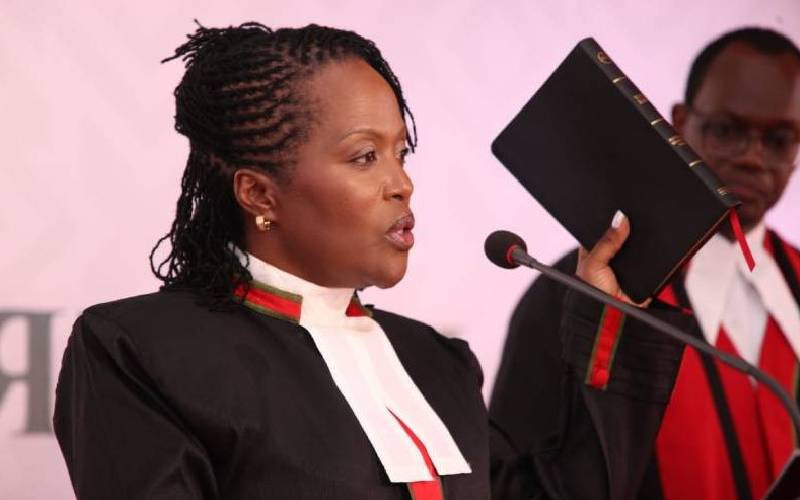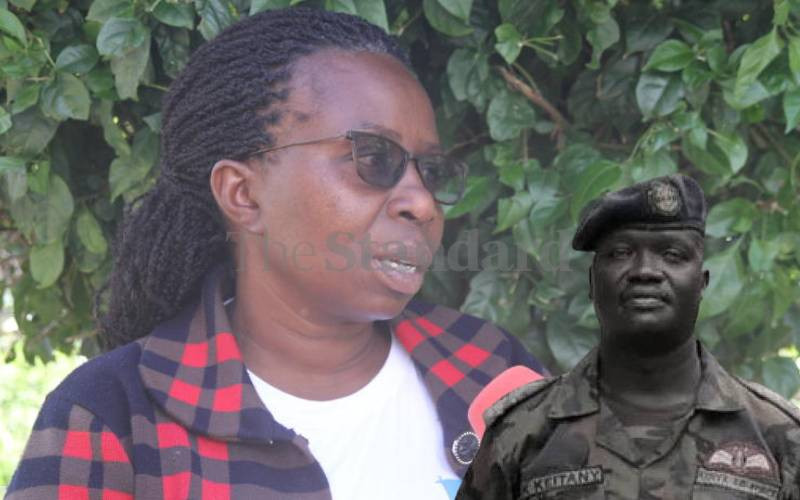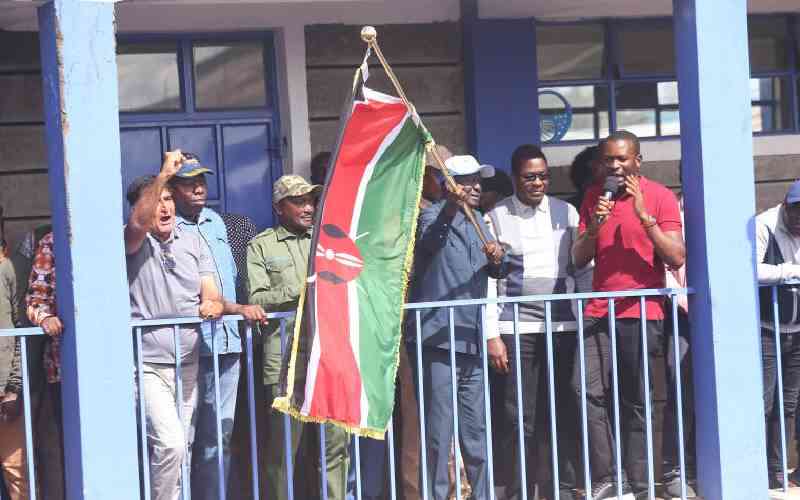By JUMA KWAYERA
Captain Jorum Kembo was on patrol with fellow Uganda People’s Defence Forces (UPDF) soldiers when he spotted a group of Somali youth. They were headed for a building on Balaad Road. It was Sunday after sunset, three months after Al Shabaab fighters had been pushed out of the capital Mogadishu. Out of curiosity and aware that Al Shabaab would do anything to conscript young fighters, the soldiers went to inspect the buildings. Their fears were wiped by high-decibel music – and hip hop at that — and the patterned blinking of green, red, yellow and blue light. It was a discotheque! Mogadishu was experiencing nightlife, and safely so.
These are some of the rare stories a visitor to Mogadishu comes across today, just three months after the terrorist group that had the Somali capital in its clutch was uprooted. Even Balaad Road that links the city to the north is changing from an overgrown bush with huge trees growing in the middle, after the derelict road was cleared by the Ugandan troops. Some sections of the road are now motorable, though still largely symbolic of the two-decades of dereliction. The discotheque in Maslaah suburban region of Mogadishu is not your usual kind, although it offers some sort of entertainment to the starved city. Captain Kembo says it is a sign that things have been changing in the anarchic capital that has seen 20 years of brutal fighting come to an end.
Brutal and severe
Some of the youth venturing into the rare nightlife have not experienced peace in their city from birth, says the captain. “They have an appetite for the finer things of life like all of us,” he quips. The warlords who fought for control of the country precipitated apocalyptic inter-clan wars that created permanent scars in Somalia. The brutality and severity of the Somali conflict has been retold a million times. African Union Mission for Somalia (Amisom) is gradually winning over civilians following the restoration of a semblance of peace and security, although the situation in the capital remains largely fragile. Fears of a relapse into anarchy are a lingering reality.
The resurgence of Mogadishu is an outcome of African Union troops having succeeded in extending the defence line to more than 30 kilometres from the city. It has in the process ushered in the longest period of peace Mogadishu has ever enjoyed since the ouster of former military strongman Siad Barre in 1991. Save for Tuesday’s Al Shabaab assassination attempt on President Sheikh Shariff Sheikh’s motorcade, the sound of gun and mortar has substantially reduced, although insecurity remains a major concern. Amisom Force Commander, Lt-Gen Andrew Gutti, acknowledges the challenges the capital faces, saying it is a long way from stability. Sniper fire and remote-controlled bombs are the latest armour in Al Shabaab’s ever-changing tactics to repulse the Amisom onslaught.
A discothèque is the last thing residents of Mogadishu would have imagined could be found in their midst. But this is ku soo dhowaah Somalia (welcome to Somalia). And Jidka Maka Murkaram, the main street, boasts of hawking and roadside food kiosks that are becoming common like any other African city. Music videos and CDs once outlawed as ungodly are making a return, just as Somali popular music. (Ironically, few if any Somalis remember the 2010 theme song Wavin’ Flag, popularly known as I want My Freedom by K’naan done by their countryman who is now in exile in Britain).
Although threat of an Al Shabaab attack is ever looming, the new level of confidence manifests in the rush to repair and repaint residential buildings and business premises. Locals says the central business district, known as Kilometre Four (K4) Area headlined by Bakara Market that once teemed with humanity is coming back to life after decades of fighting that had transformed Mogadishu into a ghost city.
However, Gutti says the capital is springing back to life.
“New buildings are coming up, roads are being repaired. If security can be enforced and Al Shabaab kept in check, the reconstruction of the capital will pick up pace. Somalis are a people like any other and having a formed security unit will ensure peace is sustained,” Gutti said in response to concerns that plans on lasting security are taking too long to come on stream.
Trust of locals
Having tasted peace, ordinary Somalis are volunteering information on the whereabouts of the militia group, resulting in averting terrorist attacks against the transition Government. Many witnessed sharp decline in sniper, grenade and IED attacks, registering just six, including this week’s assassination attempt on the president.
The modest success in flushing out the militants and winning the trust of locals has created room for a restart of social life in this coastal city that has been the epicentre of religious extremism in East Africa.
When the Islamic Courts Union seized control of Mogadishu in 2006, it enforced the strict Sharia code of conduct. It was sacrilegious for women to wear long trousers, and it was mandatory for men to wear long beards. Indulging in alcohol and commercial sex were offences punished by stoning culprits to death. But not anymore. Its leaders, among them the current President of the Transitional Federal Government Sheikh Sharif Sheikh Ahmed, barred all forms of entertainment, including football, movies, and music.
Youth found to have breached the code had their limbs amputated, stoned to death or forced to face a fire squad!
Stay informed. Subscribe to our newsletter
“We are witnessing social change. It is the revival of a failed state. Somali youth want freedom like their generation in other countries. It is like Egypt, where Muslim women wear long trousers and do not bother about the hijab (a facial veil), unless out of personal choice. Somali women can now choose what to wear and even date a non-Somali man of their choice without having to fear religious repercussions. The women can date non-Somalis without incurring the wrath of local people,” says Captain Kembo, who is involved in a Civil Military Coordination programme. Cimic, as it is known, is intended to dispel fears that Amisom is an occupation force, propaganda the soldiers say had been used initially by Al Shabaab and Al Qaeda fundamentalists to rally Somali support against AU troops. “They now tell us that under Barre, Somalia were a secular State. Religious fundamentalism changed life for many people, especially women who were barred from wearing long trousers or going into the streets without the hijab. Women now wear body-hugging trousers and they do not need to hide their faces when in the streets. Some can afford to drink alcohol, although that is uncommon,” says Captain Kembo.
Demand for goods and services
The resurgence of Somalia has been met with rising demand for goods and services that were until four months ago outlawed under the Sharia code of conduct. Under the Cimic Programme, local people protected by Amisom are setting up businesses. On the southern end of the Mogadishu International Airport is a thriving Marina Business Mall where traders, protected by Amisom soldiers import and sell luxury goods that had been banned by the Al Shabaab and ICU, the former’s predecessor.
Asked if the transformation of Mogadishu and Somalia in general into a stable state has been achieved, President Sharrif told The Standard On Saturday, “What has been achieved is modest. We appreciate the contribution of the Amisom, but we want the momentum to be sustained so we can have lasting peace.”
The president remains apprehensive that conflict can explode any time. A month before he came close to being assassinated, his Prime Minister survived an attempt on his life.
Observes UPDF Deputy Spokesman, Captain Ronald Kakurunga: “Life is not exactly normal. There are still suicide bombers on the prowl. The threat of roadside remote-controlled bombs and sniper fire targeting ordinary citizens is a new challenge we have to deal with.”
The city has no paved roads and those that had tarmac during the reign of Barre have peeled off. The dust and heaps of sand on the port city provide ideal location to hide IEDs (improvised explosive devices). Response? The military sprinkles major roads used by the Amisom vehicles with water. It makes it simpler to detect mines and explosives buried in the layers of dust on the city’s roads.
 The Standard Group Plc is a
multi-media organization with investments in media platforms spanning newspaper
print operations, television, radio broadcasting, digital and online services. The
Standard Group is recognized as a leading multi-media house in Kenya with a key
influence in matters of national and international interest.
The Standard Group Plc is a
multi-media organization with investments in media platforms spanning newspaper
print operations, television, radio broadcasting, digital and online services. The
Standard Group is recognized as a leading multi-media house in Kenya with a key
influence in matters of national and international interest.
 The Standard Group Plc is a
multi-media organization with investments in media platforms spanning newspaper
print operations, television, radio broadcasting, digital and online services. The
Standard Group is recognized as a leading multi-media house in Kenya with a key
influence in matters of national and international interest.
The Standard Group Plc is a
multi-media organization with investments in media platforms spanning newspaper
print operations, television, radio broadcasting, digital and online services. The
Standard Group is recognized as a leading multi-media house in Kenya with a key
influence in matters of national and international interest.








